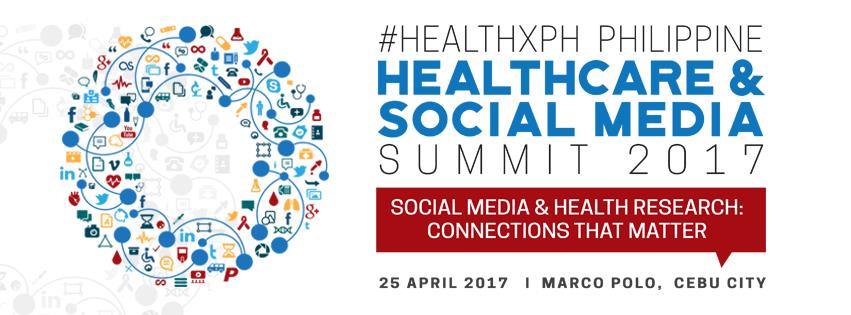The Philippine Council for Health Research and Development is now accepting capsule research proposals for possible funding in CY 2018. Priority topics for the capsule research proposals are enumerated per research area as follows:
Diagnostics - Development of diagnostics for early detection and/or prediction of disease and mortality, utilizing existing technologies and/or novel technology. Such technology will also look at the genetic or biological markers associated with lifestyle diseases such as diabetes mellitus, cardiovascular diseases and cancer. The diagnostics can be point of care, screening, confirmatory, prognostic. Possible technologies for research include:
· Latex agglutination
· Lateral flow assay/Dipstick
· Isothermal technology
· Biosensors/Chemical sensors
· Nucleic Acid Testing
· Immunochemistry
· Lab-on-a-chip (Microfluidics, paper technology, Nanotechnology, Aptamers or a combination of)
· Immunoassay
· Radio-labelled assays
Priority Topics
Proof of concept for point of care, screening, confirmatory and prognosis for the following priority diseases: tropical diseases (including neglected diseases); malignant neoplasms; emerging infectious diseases; neurodegenerative and mental health disorders; diseases associated with multi-drug resistance; metabolic diseases, diabetes and other endocrine-related diseases; auto-immune/immunologic diseases and deficiencies; cerebrovascular; diseases of the cardiovascular system; HIV-AIDS; GUT, GIT and hepatitis; respiratory diseases; and, tuberculosis (all forms).
Functional Foods - Food or food components that provide health benefits beyond basic nutrient function; Involves determination of health benefits and safety assessment of food or food components in reducing risk for disease occurrence, specifically lifestyle related diseases such as cardiovascular disease, diabetes, and cancer.
Priority Topics
· Characterization, safety assessment, establishment of health benefits and product development of local fruits (guyabano, tiesa,), local vegetables (okra, saluyot), rootcrops, tuber and starchy food (yacon, sago, purple yam), rice (pigmented), local berries (duhat, lipote, aratiles, bignay), Herbs and spices (tanglad, pandan), nuts (pili), seaweeds (lato, red seaweeds) and edible mushroom.
· Safety assessment, establishment of health benefits and product development of mangosteen, malunggay, sweet potato varieties, and ginger.
Molecular technologies for health - Utilization of molecular technology platforms in developing local technologies for the development of personalized medicines, diagnostics, therapeutics as support to health and clinical practice guidelines and policies
Priority Topics
Omics Technologies for Health and Wellness
- Omic Research Programs on neurological/ neurodegenerative/ mental health conditions (susceptibility and drug response)
- Researches on human host and viral markers of dengue severity (knowledge generation on pathophysiological and molecular mechanisms of dengue severity)
Bioinformatics and Systems Biology
- Development of platforms/ bioinformatics pipelines/ analyses on complex activities and interactions of genes, RNAs, proteins and metabolites that comprise the biological pathways and networks between normal and diseased cells
- Data mining researches involving lung and/or breast cancer tissues
Novel Technologies for Therapeutics
- Development of molecular vehicles for targeted drug delivery
Biobanking, Data Mining and Population Studies for Human Health, Ethnicity and Forensic Applications
- Developing forensic methods used in criminal investigations, kinship analysis and victim identification
- Characterization of Filipino genomic variations involving regional ethno-linguistic groups
- Establishment of a biobanking resource of Filipino samples and their associated data (e.g. genomic, proteomic, transcriptomic etc.)
Hospital Equipment and Biomedical Devices - Design and development of affordable, safe, and reliable hospital equipment and biomedical devices
Priority topics
Design and development of hospital equipment and biomedical devices for the following:
- Respiratory failure support
- Artificial body part replacement (prosthesis)
- Rehabilitation medicine
- Minimally invasive surgical procedures
- Eye health
Information and Communication Technology (ICT) for Health - User-friendly ICT solutions to accelerate the gathering and processing of health and related information for policymaking and delivery of quality health care services
Priority topics
- Public health surveillance
- Health intelligence system
- ICT-enabled medical devices and services
- Software and applications
Dengue - Dengue R and D intends to reduce transmission of dengue and development of an early warning system for the prediction of dengue outbreak.
Priority Topics
Vector biology
- Establishment of DNA barcodes of medically important mosquito vectors biological
Vector surveillance and IVM
- Insecticide treated nets as dengue control measure
- Genome editing of Aedes aegypti
Dengue Outbreak Response
- Development of a system for yearly monitoring of the prevailing dengue serotypes in the Philippines
Disaster Risk Reduction - Innovations which will reduce risks to health; Based on the Sendai Framework
Priority topics
- Innovations for emergency medical care services, water, sanitation, hygiene and nutrition
- technology development for search and rescue, triage and emergency health
- ready to use therapeutic food (RUTF)
- food for emergencies
- environmental health (water quality; waste disposal)
- Psychosocial adaptation capacity of communities
Health and Climate Change Adaptation - Covers cross-cutting researches on climate change adaptation, which have direct implications on public health
Priority topics
- Researches relating to human health with hydrologic/meteorological information
- Climate change sensitive diseases
- Resilience studies at institutional, community and individual levels
- Implementation science regarding existing tools and interventions on health and climate change
- Green health facilities
Who may submit
Filipinos with at least a Master’s Degree in a relevant field, have proven research competence / track record, and employed in universities/colleges, research agencies/institutes, hospitals, and other health related agencies are eligible to apply for the research grant/ funding assistance.
How to submit
Submit the capsule proposal and curriculum vitae of the proponent to:
Dr. Jaime C. Montoya
Executive Director
Philippine Council for Health Research and Development
Department of Science and Technology
3rd Floor, DOST Main Bldg.
Gen. Santos Avenue
Bicutan, Taguig City, Metro Manila
Deadline for submission of capsule proposals: 31 May 2017
For inquiries, contact us at This email address is being protected from spambots. You need JavaScript enabled to view it.
Download Call for Proposal 2018 details
Download capsule proposal format







